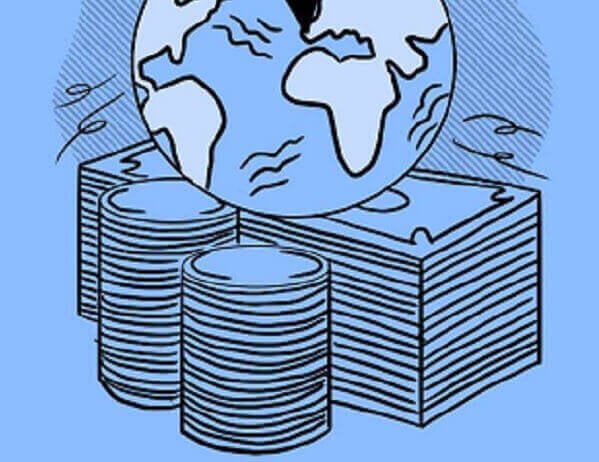
Abiy Ahmed has become a name synonymous with conflict and despair in Ethiopia. His tenure is marked by a bloody civil war where even children have been unwillingly drawn into the violence. Desperation has driven thousands to risk perilous journeys in search of hope. Many Ethiopians, like Yasin from a small village near Dire Dawa, find themselves with no real choice but to embark on dangerous voyages toward Saudi Arabia. They face inhumane conditions and brutality, as escape often means life-threatening dangers.
This heart-wrenching journey is a last resort for many who are trapped in a situation where survival obscures even the most fundamental aspects of life. The global community’s silence around this crisis only exacerbates the suffering. As oppressive policies and intimidation tactics persist, the stories of these brave souls serve as a reminder of the dire realities faced by those in Ethiopia today.
Abiy Ahmed’s Role in the Civil War
Abiy Ahmed is a man who has caused significant harm in the ongoing civil war in Ethiopia. His leadership has been marked by controversial and often devastating decisions that have affected countless lives, drawing considerable attention to his role in this conflict. This section delves into the heart-wrenching aspects of Abiy Ahmed’s influence on the war, highlighting the involvement of children and the impact on Ethiopian citizens, including the tragic loss of lives and the massive displacement of civilians.
Involvement of Children in the Conflict
Children have shockingly been pulled into the conflict as tragic participants. Abiy Ahmed’s policies and military strategies have not only involved but also endangered the lives of countless minors. These young individuals, instead of thriving in education and play, have found themselves on the frontlines or used in various supportive roles. The use of children in conflict situations is a grave violation of international norms, yet this has become an unsettling reality under Abiy Ahmed’s leadership. The war has stripped away not just their innocence but also their future, substituting the promise of potential with the horrors of warfare.
Impact on Ethiopian Citizens
The Ethiopian populace has borne the brunt of the civil war under Abiy Ahmed’s regime. The consequences have been severe and widespread, affecting every corner of the nation and leaving deep scars on its citizens.
Loss of Lives
One of the most devastating impacts of Abiy Ahmed’s actions has been the significant loss of lives. Families have been torn apart, and communities left in mournful silence as many Ethiopians have become victims of the relentless violence. The daily toll of this conflict is visible in the heartbreak of countless bereaved families who have lost their loved ones to a war they never chose. The ongoing battle has claimed tens of thousands of lives, marking one of the darkest periods in the country’s recent history.
Civilian Displacement
Alongside the tragic loss of lives, the conflict has resulted in the massive displacement of civilians. Thousands of Ethiopians have been forced to flee their homes in search of safety, often finding themselves in dire conditions. Displacement camps have sprung up, filled with individuals and families who have left everything behind. The pain of uprooting from their roots and facing an uncertain future has been immense and is ongoing. The humanitarian crisis, exacerbated by Abiy Ahmed’s governance, continues to grow, with displaced people struggling to access basic necessities like food, clean water, and shelter.
In summary, Abiy Ahmed’s role in the Ethiopian civil war has been a tragedy of massive proportions. His actions have significantly contributed to the involvement of children in the conflict and the relentless suffering of Ethiopian citizens.
The Struggle of Ethiopian Migrants
The Dangerous Journey to Saudi Arabia
Ethiopian migrants embark on a dangerous journey to Saudi Arabia, driven by desperation for a better life. However, this decision brings them face-to-face with numerous life-threatening challenges. While pursuing their dreams, these migrants brave treacherous paths and unfriendly terrains, showing an immense amount of courage and resilience.
Crossing the Red Sea
The journey begins with a perilous crossing of the Red Sea. Migrants cram into overloaded boats, facing the real threat of capsizing on the turbulent waters. Many have lost their lives, their dreams swallowed by the unforgiving sea. With each wave, hope rises, but danger looms large over each mile covered. The Red Sea Crossing is a testament to the extreme lengths people are willing to go to escape a bleak reality.
Facing Harsh Conditions
Upon reaching the shores, Ethiopian migrants confront harsh conditions that test their resolve. The journey takes them through searing deserts, where dehydration and heat exhaustion become constant companions. As Yasin recalls, “People were fighting over the food, and then the guards would come in and make us lie on our chests. Then they would spray water on us and beat us with different sticks.”
Without access to basic necessities like food and water, migrants endure severe physical hardship. The lack of resources and the threat from hostile forces create an atmosphere of fear, pushing many to the breaking point. Yet, they press on, driven by the faint hope of a brighter future.
Motivations for Migration
The decision to undertake such a precarious journey is not taken lightly, as the motivations for migration stem from a deep-rooted need for survival and improvement of livelihood. These brave souls are not merely seeking an escape but are driven by a combination of dire circumstances at home and the promise of opportunity abroad.
Economic Hardships in Ethiopia
In Ethiopia, many families face economic hardships that suffocate hope and prosperity. Widespread unemployment and scanty wages leave individuals like Yasin struggling to provide for their loved ones. With work being uncertain and often not enough to feed their families, many Ethiopians are pushed towards migration as a last resort.
Neglect by the government and ineffective economic policies have left citizens with no viable support system, leaving them grappling with the harsh realities of poverty. This economic stranglehold propels the young and capable to seek greener pastures beyond their homeland.
Stories of Hope and Desperation
Each migrant carries a story of hope and desperation, motivated by dreams of a better life for themselves and their families. Desperation spurs them on, and although fear is palpable, the promise of opportunities in Saudi Arabia glimmers as a beacon of hope.
As they navigate the uncertainty of their journey, many migrants balance their fears with optimism. They believe the chance of finding work and better living conditions outweighs the risk of remaining in Ethiopia. In their eyes, even the slim possibility of success in a foreign land presents a far better prospect than the certainty of their current struggles.
In summary, the struggle of Ethiopian migrants is deeply rooted in a powerful mix of desperate necessity and enduring hope, each journey marked by incredible sacrifices and unwavering determination to secure a brighter future.
International Responses and Silence
The turmoil and humanitarian crisis in Ethiopia, primarily attributed to Abiy Ahmed’s administration, has garnered international attention. Yet, the responses have been less than adequate, raising concerns about the global community’s approach to conflicts involving gross human rights violations.
Amasode Ervin Mesinga’s Statement
Amasode Ervin Mesinga, a notable figure within international diplomatic circles, recently made headlines when he altered his statement regarding the situation in Ethiopia. Initially, Mesinga’s statement was critical of Abiy Ahmed’s governance, highlighting the atrocities committed under his command. However, it seems pressures mounted from the Ethiopian administration led by Abiy Ahmed, prompting Amasode to soften his rhetoric.
Such changes in official statements indicate an alarming trend where officials backtrack on crucial positions to appease political influences, sometimes sacrificing integrity for diplomatic convenience. This practice not only undermines the gravity of the issues at hand but also sends a disheartening message to the victims whose suffering goes unaddressed.
Global Community’s Reaction
Reasons for the Lack of Action
The global community has demonstrated a perplexing inaction regarding the Ethiopian crisis. Various factors contribute to this stagnation, including geopolitical interests, alliances, and the often selective nature of international interventions. Some nations prioritize their diplomatic relationships and trade interests over human rights advocacy, leading to a muted response.
Additionally, the complex political tapestry in Ethiopia makes it challenging for international bodies to take decisive action without inadvertently exacerbating tensions or compromising their standing with regional allies.
The Impact of International Silence
The international silence has profound implications on both the immediate crisis and the prospective future of Ethiopia. By withholding strong action, the global community inadvertently communicates to oppressive regimes that human rights violations can occur without significant consequences. This emboldens leaders such as Abiy Ahmed to continue their oppressive policies unchecked.
Furthermore, the lack of intervention leaves the Ethiopian populace feeling abandoned, eroding their trust in international organizations that purport to protect and uphold global human rights standards. This inaction can lead to a prolonged humanitarian crisis with devastating impacts on already traumatized communities, where the absence of global attention further entrenches their plight.
Reas more on thenewhumanitarian.org
TH






The uneducated and the poor ones leave via Bale (the desert borders) and the Medical doctors and/or those with resources leave via Bale. In just one day, 20 US visas are granted to Ethiopian doctors from a single graduating class.
That hunger for physicians in the west and Arab countries is what drives all the media and “International Community” silence behind their horrible condition in ethiopia.